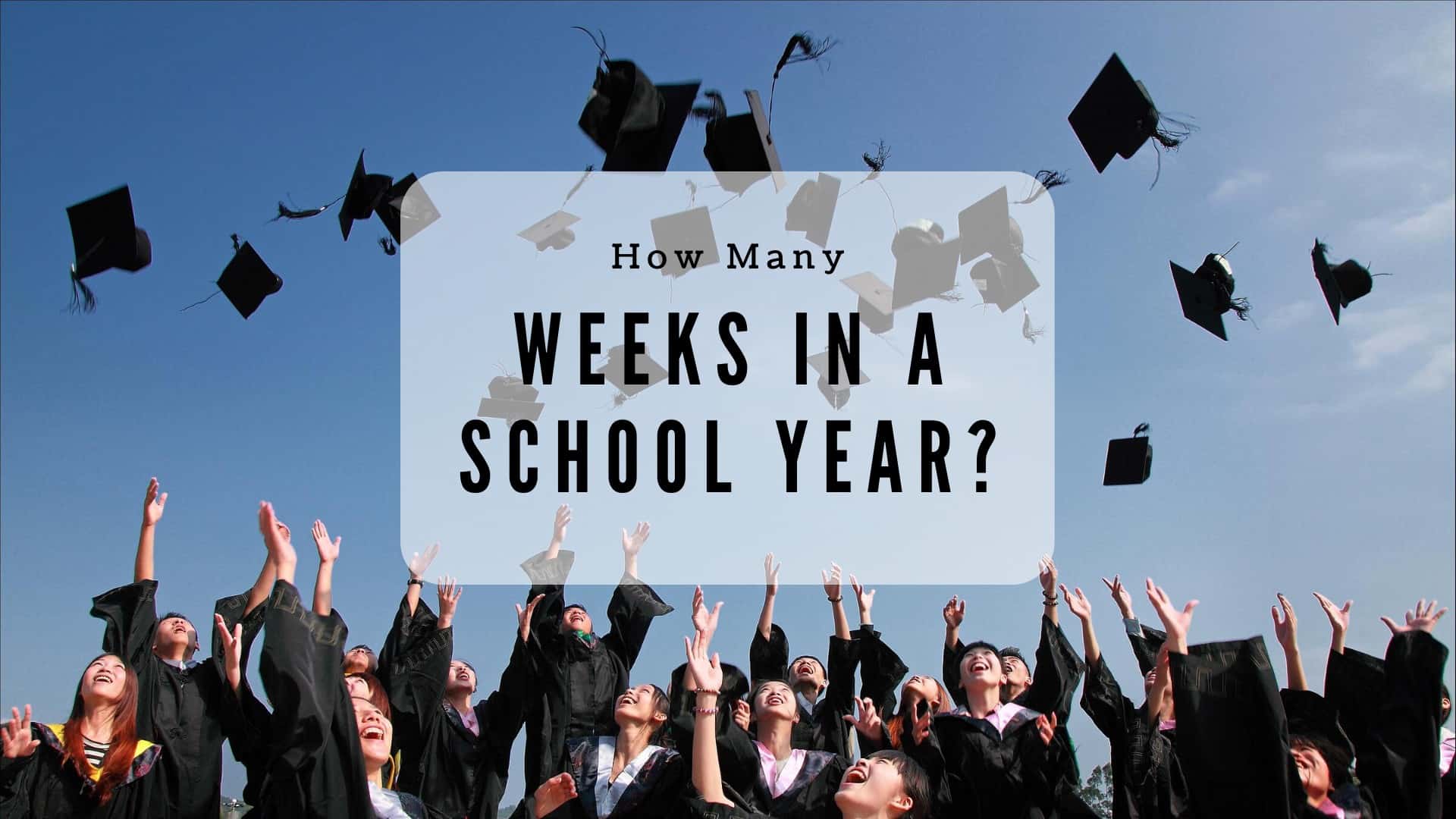It seems like every day, there are new announcements about how much time students have in school. And for many people, that time is flying by. But what does it all mean? How many weeks in a school year? What does this number mean for you!
First and foremost, according to the National Education Association (NEA), “a week is the equivalent of three months”. That means that if you’re in school for a whole month, it would only amount to half a day. In addition, your days and hours may be split up even more nowadays because classes start at 8am and finish at 6pm—that leaves barely enough time to do anything meaningful on our days off! To make matters worse, we’re consuming increasingly fewer hours of sleep each day too. So if you’re looking for ways to maximize your educational opportunities, making sense of how long you actually spend in school is key.
What is a school year
A school year is the time that students in a school system attend school. There are three types of schools: primary, secondary, and post-secondary. A primary school is for children who are still young and need to learn about the world around them. A secondary school is for children who have finished high school and are ready to start college or university. A post-secondary school is a place where adults can study after they have completed high school or college.
There are many different areas of study in a school year. The different areas of study in a school year might include: mathematics, social studies, English, science, humanities, and arts. In addition, each student in a class will usually be required to take multiple courses throughout the coursework for their grade level.
What is a School Year
A school year is the time it takes for children to complete a particular level of education. This can include different areas of study such as academic, social, and vocational classes. In addition, each grade levels in a school year will have different opportunities for students to achieve grades A-F.
What are the different types of classes in a school year
There are many different types of classes in a school year, including academic, social, and vocational classes. Academic classes may focus on meeting required goals such as reading and math skills or studying science or mathematics. Social classes might teach about healthy living habits or topics like economics or history. Vocational classes may focus on things like carpentry or welding.
What are the different opportunities for grades in a school year
Students have many options to achieve grades in a school year including passing any class, getting an A+, getting into a specific class that you’re interested in, or achieving an As+ in all your courses without having to pass any!
Tips for Successfully Investing in the School Year
When you are investing in your school year, it is important to have a long-term investment strategy. This means that you want to invest money in different parts of your school year so that you can achieve the best return on your investment. For example, if you want to save for college, you might invest in stocks during the summer months when rates are lower and make a smaller purchase. Alternatively, you could invest in bonds during the fall and winter months when rates are higher and purchase more expensive items.
Diversify Your Investments
When Investing In School Year:
It is important to diversify your investments so that you have multiple sources of revenue and capital available should one of your investments go bankrupt or lose value. You can do this by investing in mutual funds or ETFs which will provide a diversified portfolio of investments with low risks. Additionally, it is helpful to keep track of stock prices so that you can predict how their value will change over time (this is referred to as volatility). This information can be found through brokerages or online tracking services like Stock Market Voyager or Thomson Reuters VRTS.(4)
Stay Up-to-Date on Financial News
Be sure to stay up-to-date on financial news when planning your school year because changes in interest rates, tuition hikes, and other expenses can affect your budget severely! By keeping updated on current events and knowing what money worries parents have, you’ll be able to better plan for financial emergencies while still providing quality education for your children.(5)
Be Prepared for Volatility
It is important to be prepared for volatility in the school year because it can affect your budget, investments, and overall education experience. By keeping a diary of all expenses and tracking changes in your finances, you can anticipate any potential volatility and adjust your investment strategies accordingly.(6)
Conclusion
If you want to successfully invest in the school year, you’ll need to have a long-term investment strategy and be prepared for volatility. By diversifying your investments and staying up-to-date on financial news, you’ll be able to make the most of your money while still being able to invest efficiently. Additionally, it’s important to have a strong plan for dealing with unexpected expenses, as school can be expensive! Finally, be sure to remember that there is no such thing as “easy” or “safe” when it comes to school – always be prepared for anything!






